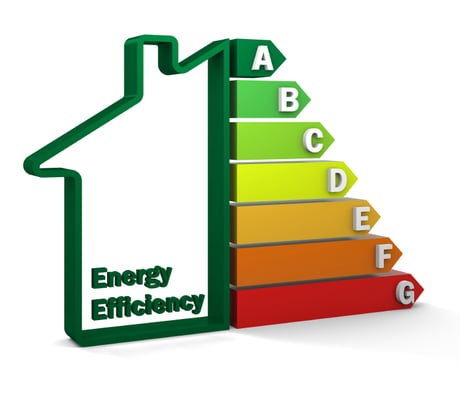

This briefing note aims to provide an overview of the implementation of the MEES exemptions and exclusions enforcement provisions and the impact on dilapidations in relation to non-domestic properties.
Implementation.
The Energy Efficiency (Private Rented Property) (England and Wales) Regulations 2015 set out the minimum level of energy efficiency for private rented property in England and Wales. Part 3 of the Regulations contains the minimum level of energy efficiency provisions which are currently set at an energy performance certificate (EPC) rating of band E. The regulations are a directive originating from the Energy Act 2011 which requires new regulations be introduced to increase the energy efficiency of private rented buildings situated in England and Wales.
Implementation of the Regulations is to come into effect in the following stages:
– From April 2018, the MEES regulations trigger an enforcement mechanism that will apply to all privately rented non-domestic buildings. The new legal standard makes it unlawful to Lease all privately rented commercial properties or permit Lease renewals unless the building can achieve an EPC rating of ‘A’ through to ‘E’.
– From April 2023, all privately rented properties with Leases that commenced before 1st April 2018 must comply with the MEES regulations.
The guidance set out in ‘The Non-Domestic Private Rented Property Minimum Standard’ document confirms that MEES will only apply to those properties which require an EPC by law.
Reasoning.
The government has identified that the built environment is a major contributor to Greenhouse Gas emissions which directly affects the UK’s target to reduce carbon emissions by 2030. It is estimated that heating and powering our non-domestic buildings is responsible for around 12% of the UK’s emissions.
The government estimates that 18% of commercial properties across the UK hold EPC ratings of F or G and as such the new minimum energy standards aims to improve the EPC ratings of England and Wales commercial building stock.
Exclusions and Exemptions.
Identifying if a building or tenancy are affected by MEES is not straightforward, as there are various exclusions and exemptions Landlords can claim for depending on the circumstances surrounding the property.
The exemptions available to Landlords include:
– The ‘Golden Rule’: if the Landlord has carried out all possible cost-effective improvements but the building does not meet the standards, then that particular property would be exempt from meeting the standards for 5 years. By using the Green Deal’s ‘Golden Rule’ where improvements must pay for themselves within 7 years, the property may be exempt from complying with the MEES standards.
– Devaluation: If a specialist independent surveyor determines that the relevant improvements that could be made to the property to improve the EPC rating would have a negative impact on the market value of the property, then the building could be exempt. However, there must be a 5% or more reduction in the market value for this to apply.
– Third Party Consent: If the Landlord cannot obtain necessary consents to install the required energy efficiency improvements despite all reasonable efforts then the property will be exempt. Consents include from the Tenants, lenders, Superior Landlords and local authorities, especially in the case of listed buildings.
– Lease terms: Properties that are let on a Lease term of less than 6 months or more than 99 years are excluded from the regulations.
– Recently becoming a Landlord: The regulations acknowledge that there are some limited circumstances where a person may suddenly become a Landlord and as such, it would be inappropriate or unreasonable for them to comply with the Regulations immediately. Therefore, the Landlord is granted a six-month temporary exemption after which they will be required to meet the requirements of the regulations or register a valid exemption.
In all cases Landlords are advised to obtain their own independent advice in relation to possible exemptions and must ensure that all exemptions are registered via the central government PRS Exemptions Register.
Enforcement and Penalties.
Local Weights and Measures Authorities (LWMAs) will enforce the provisions set out in the MEES regulations as well as Trading Standards who will also undertake enforcement activity. The enforcement teams can impose hefty penalties for Landlords that do not improve their properties. Penalties range from a minimum penalty of £5,000 to a maximum of £50,000 within the first three months of a penalty notice being served. After three months, the penalty will rise to a minimum penalty of £10,000 to a maximum of £150,000.
Dilapidations Matters.
The MEES regulations are set to impact existing Leases from 1 April 2023, which will impact how Building Surveyors advise Tenants and Landlords in relation to Dilapidations matters. Landlords will have to undertake all reasonable efforts to implement improvements to their properties, excluding exempt properties, to improve its EPC rating during the term of a Lease.
The Jervis v Harris clause which provides certain powers to the Landlords to enter their property to carry out repair works when Tenants fail to do so, will not have the same enforcement under the new regulations. The new regulations place the obligations on the Landlord to carry out the works, therefore entry to a property, mid-term will unlikely be unlawful under the Leasehold Property (Repairs) Act 1938.
‘Green’ Lease provisions are seen to be the answer to facilitate access for MEES improvements, ensuring both the Tenant and Landlord share the benefits of any improvements made to meet the new standards. Tenants who sign up to a new ‘Green’ Lease should be aware of potential business interruption before agreeing to sign a Lease on a building with an EPC Rating of F or lower.
There is potential for strong supersession arguments come Lease end, due to wholesale replacements of M&E equipment, for example, being required due to poor energy ratings.
To Summarise.
The first stage of the new regulations comes into force from 1 April 2018, therefore it is time to start taking practical steps to limit the impacts of the new standards, whether that be a Landlord looking to budget for improvement works required or a Tenant looking to limit disruption and risk of letting a non-compliant property.
The PRS Exemptions Register is open therefore, Landlords who wish to apply for an exemption must begin to prepare their evidence required to carry out the self-certification. Professional advice should be sought as to whether relevant exemptions or exclusions apply.
Where a property does not meet the requirements on the PRS exemption registers Landlords should seek professional advice on how best to budget for improvement works and how such improvement will impact on any current Tenancies.
For more information see the ‘Non-Domestic Private Rented Property Minimum Standard’ guidance note (2017); author: Department for Business, Energy & Industrial Strategy; at:
DISCLAIMER: This article is for general information only and not intended as advice. Each project has its own set of unique circumstances, all potential issues should be investigated by a surveyor on a case by case basis before making any decision.



